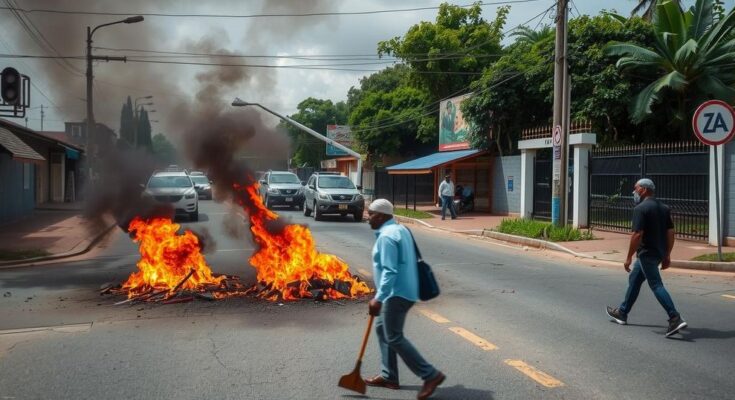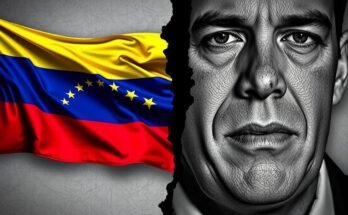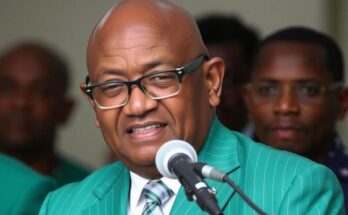Post-election violence in Mozambique has caused significant unrest, particularly in major cities like Maputo and Matola, following the Constitutional Council’s confirmation that the ruling Frelimo party has maintained power. Protests have led to looting, fatalities, and a mass prison escape, raising concerns about public safety and political stability. UN officials urge for dialogue to mitigate tensions and resolve the crisis.
Mozambique’s major cities have been thrust into chaos following post-election violence that erupted after the Constitutional Council confirmed that the ruling Frelimo party had extended its authority, maintaining power for 50 years. Major urban centers, including Maputo and Matola, witnessed widespread disruptions, with numerous businesses and transport services ceasing operations due to ongoing protests led by opposition factions, marked by looting and vandalism.
The unrest escalated after the council announced that Frelimo’s presidential candidate, Daniel Chapo, received 65% of the vote, a reduction from prior figures. As protests intensified, clashes between demonstrators and law enforcement resulted in numerous fatalities, prompting increased fear and uncertainty among residents. Eyewitness accounts of looting describe individuals seizing valuable items from various establishments, and reports indicate that up to 248 people have died amidst the unrest. Moreover, significant disturbances also led to a mass prison break, contributing to the escalating violence.
Opposition leader Venancio Mondlane has accused police forces of instigating violence, urging supporters to protest peacefully against perceived electoral fraud while condemning destructive behavior. In contrast, the police characterize the unrest as an organized criminal assault. The United Nations has called for immediate dialogue among political leadership to alleviate tensions and strive for a peaceful resolution.
In Mozambique, political stability has been increasingly threatened due to ongoing tensions surrounding electoral processes. Frelimo, which has maintained control since the country’s independence, has faced mounting opposition and allegations of electoral malpractice. The Constitutional Council’s decisions in favor of the ruling party have led to violent escalations, manifesting in widespread civil disorder, public outcry, and demands for political reform, reflecting a population increasingly disillusioned with the prevailing political environment.
In summary, Mozambique is grappling with severe unrest following contentious electoral events that have propelled major cities into a state of turmoil. Widespread protests have resulted in devastating violence and loss of life, exacerbated by accusations of police misconduct. The international community, including the UN, has urged for constructive dialogue among political factions to quell unrest and foster a peaceful resolution for the sake of the nation’s stability and future.
Original Source: www.dw.com




